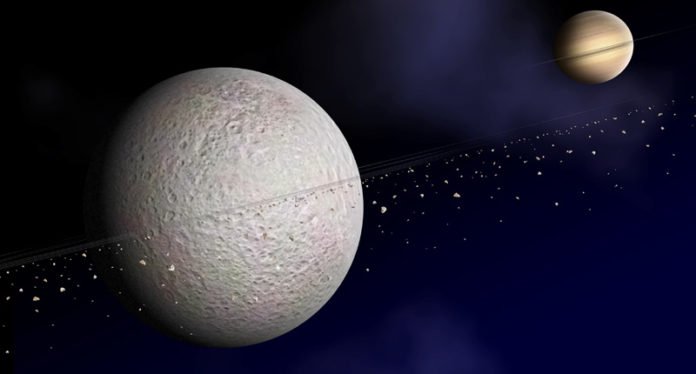The latest survey by the terrestrial planets in our solar system.
Titan is the largest moon of Saturn which has the substantial atmosphere. This atmosphere in winter is warm due to compressed and heated sinking air. But now, it seems extremely cold instead.
On September 15, the Cassini spacecraft obtained a long series of observations of Titan’s polar atmosphere. Scientists used Composite Infrared Spectrometer (CIRS) instrument and covered almost half of the moon.
They also measured gas abundances and then coupled them with a numerical radiative balance model of heating and cool rates.
While the excepted polar problem area began to create toward the begin of winter in 2009, this soon formed into a frosty spot in 2012, with temperatures as low as 120 K being seen until late 2015. Only recent observations have the expected hot-spot returned.
Lead author Dr Nick Teanby from the University of Bristol said, “For the Earth, Venus, and Mars, the main atmospheric cooling mechanism is infrared radiation emitted by the trace gas CO2 and because CO2 has a long atmospheric lifetime it is well mixed at all atmospheric levels and is hardly affected by atmospheric circulation.”
“In any case, on Titan, colorful photochemical responses in the climate deliver hydrocarbons, for example, ethane and acetylene, and nitriles including hydrogen cyanide and cyanoacetylene, which give the greater part of the cooling.”
Such gases generally produced in the high atmosphere leads to a steep vertical gradient. Means, their abundance relies on even modest vertical atmospheric circulations. thus, winter polar subsidence prompted huge enhancements of these radiatively dynamic gasses over the southern winter shaft.
Observations suggest the trace gas enrichment was large enough to cause significant cooling and extremely cold atmospheric temperatures.
Dr. Teanb said, “This effect is so far unique in the solar system and is only possible because of Titan’s exotic atmospheric chemistry.”
